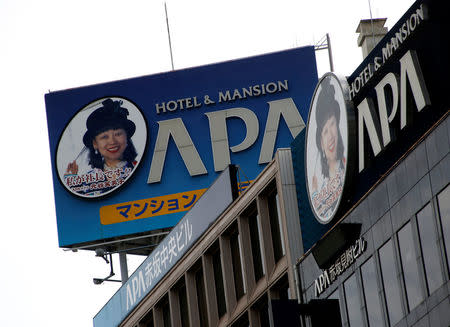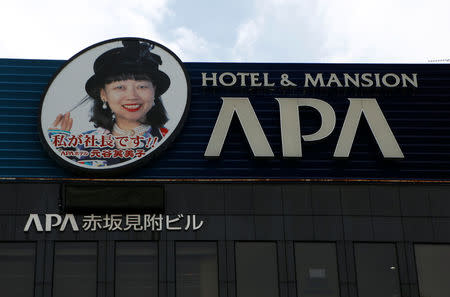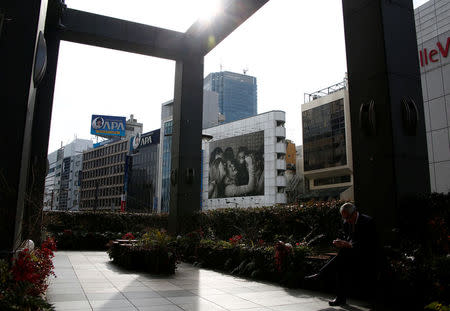Japan hotelier's Nanjing Massacre denial sparks tourism boycott calls
By Elaine Lies and Megumi Lim TOKYO (Reuters) - A Japanese hotelier's denial of a 1937 massacre by Japanese troops in the Chinese city of Nanjing has prompted Chinese social media calls for a boycott of travel to Japan, threatening tourist arrivals days before the Lunar New Year holidays. The furore erupted over books by Toshio Motoya, the president of Tokyo-based hotel and real estate developer APA Group, which contain his revisionist views and are placed in every room of the company's 400-plus APA Hotels. In one, printed in English and Japanese and entitled "The Real History of Japan", he says the "Nanking Massacre story" was "impossible", blaming looting and killings on members of a branch of the Chinese military who had shed their uniforms. "These acts were all said to be committed by the Japanese army, but this is not true," Motoya, using his pen name Seiji Fuji, wrote. Japan's wartime occupation of Nanjing and resulting massacre is a highly contentious issue between the uneasy neighbours. China says Japanese troops killed 300,000 people in the city. A post-war Allied tribunal put the death toll at about half that number. To the fury of China, some conservative Japanese politicians and academics deny that the massacre took place, or they put the death toll much lower. Motoya's latest book, comprised of essays written over the last two years, caught Chinese attention after it was uploaded on a Chinese social networking site, igniting criticism on Chinese social media and the travel boycott calls. "Any Chinese person with self-respect for their nationality should boycott Japanese goods and boycott travelling to Japan," one writer on China's Weibo platform wrote. Chinese Foreign Ministry spokeswoman Hua Chunying said she was aware of reports about the book and said it showed that "certain forces" in Japan were unwilling to face history. She urged Japan to reflect on the past and "ensure its population is exposed to a true telling of history". An APA spokeswoman declined to answer questions over the telephone when contacted by Reuters but sent comments, attributed to Motoya, in response to emailed questions. Motoya was quoted as saying Chinese tourists only made up 5 percent of their customers in Japan, and there had been no impact on the hotel, and he did not expect there would be. He was defiant in his denial of the Nanjing massacre. "They have never been able to bring up concrete proof against the interpretation that there was no Nanjing Massacre," he was quoted as saying, referring to China. "In Japan, where the freedom of expression is protected, I will continue to transmit my thoughts and beliefs," he said. Foreign tourism in Japan has soared in recent years. Some 24 million foreigners visited in 2016, according to estimates, up 22 percent from the year before, the Japan National Tourist Organization said. Chinese tourists topped the list at 6.3 million, up nearly 28 percent from 2015. Their shopping has injected welcome energy into a sluggish economy. (Additional reporting by Adam Jourdan and the Shanghai newsroom, and Ben Blanchard in Beijing; Editing by Robert Birsel)

 Yahoo News
Yahoo News 





